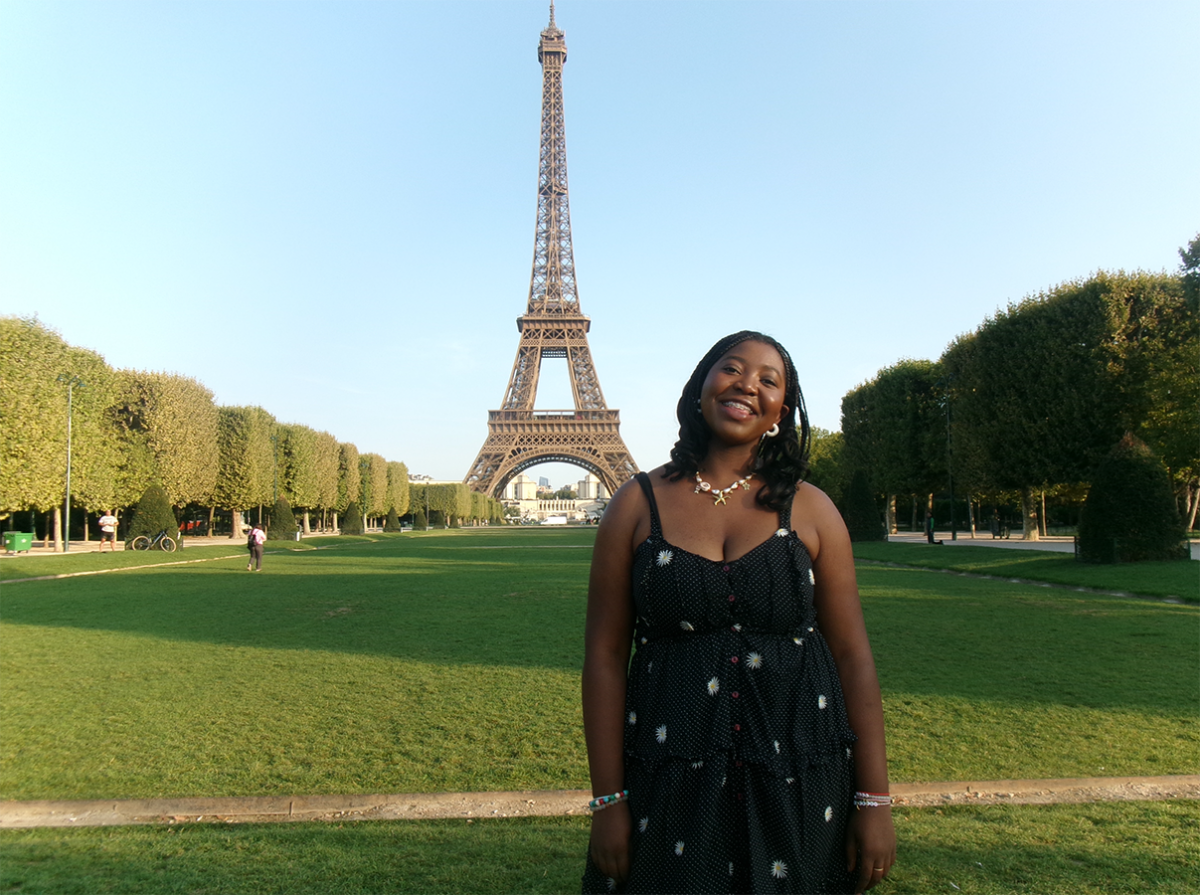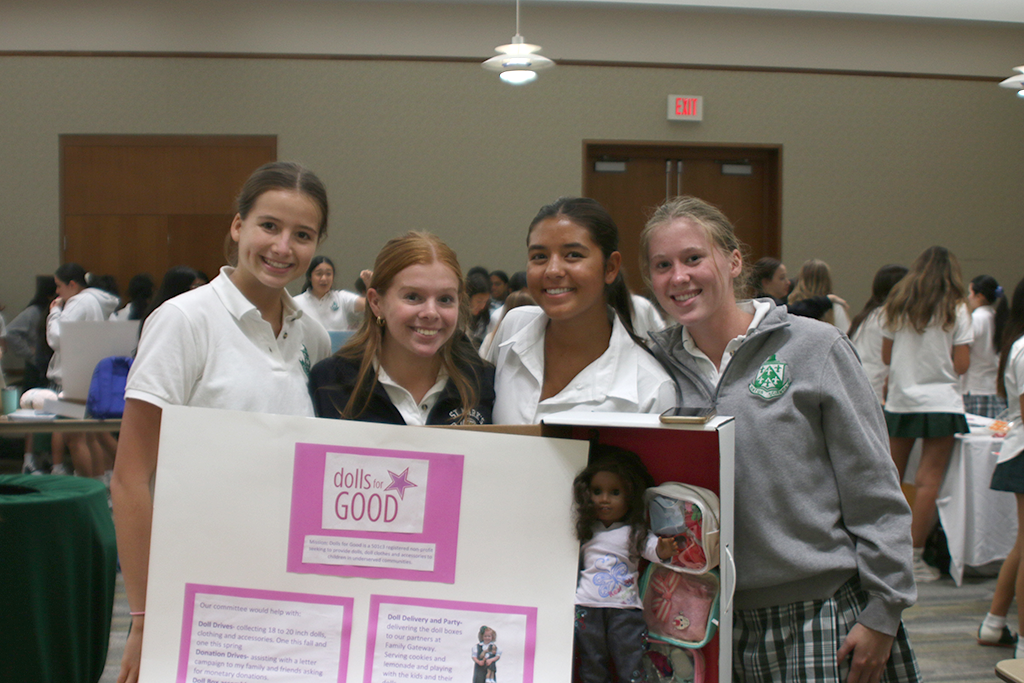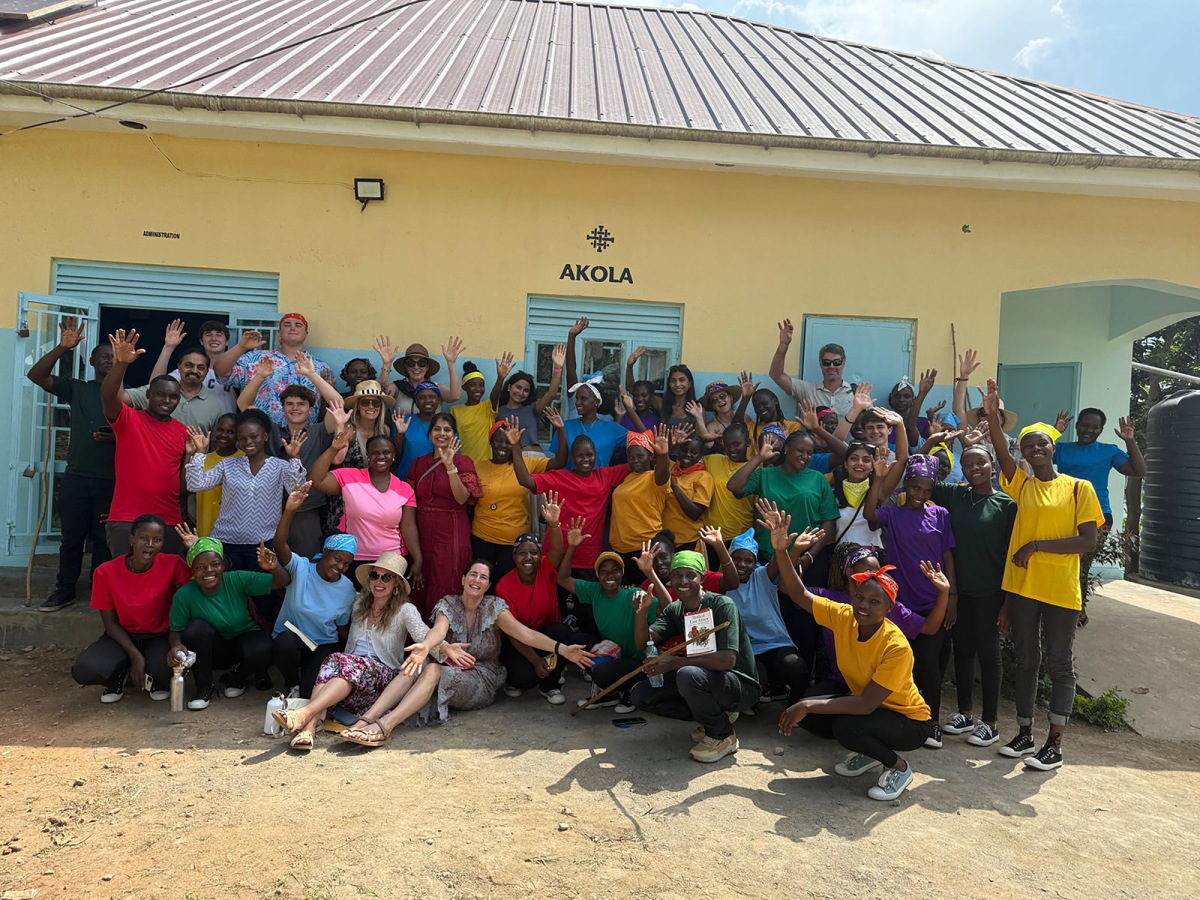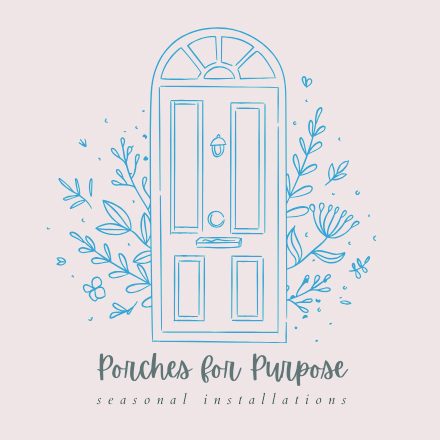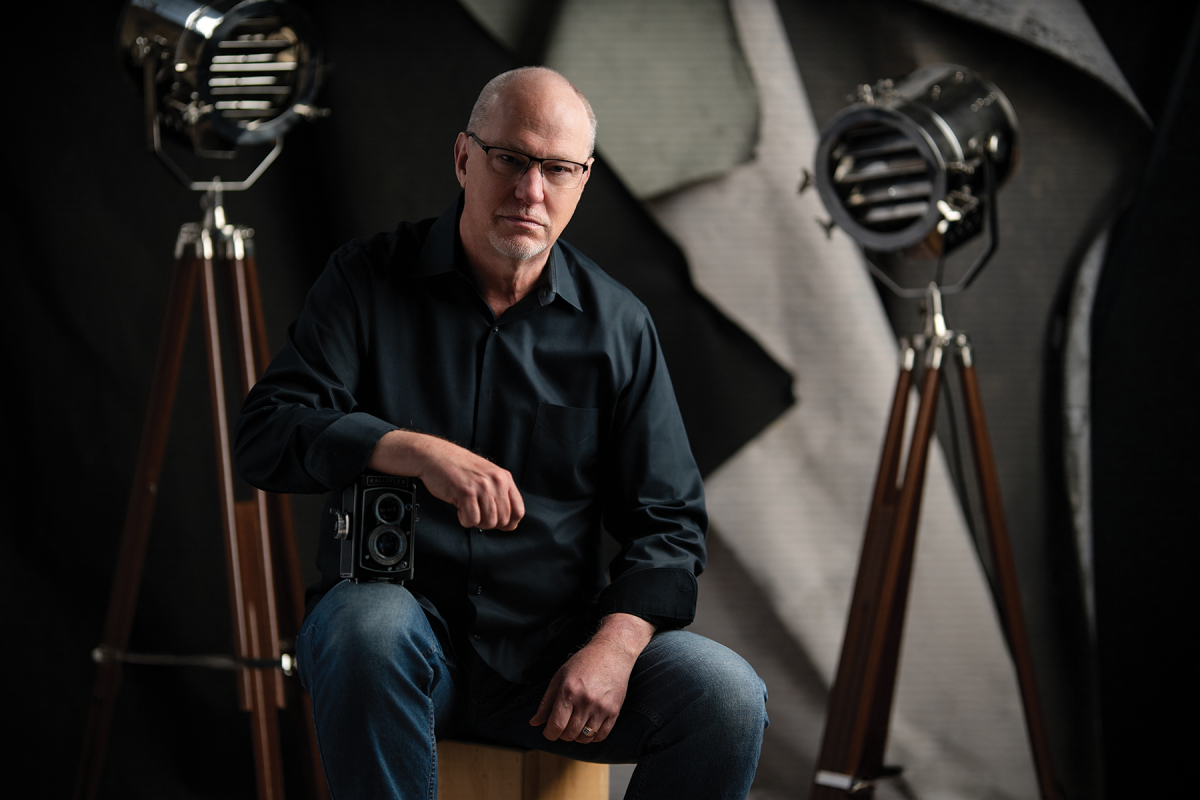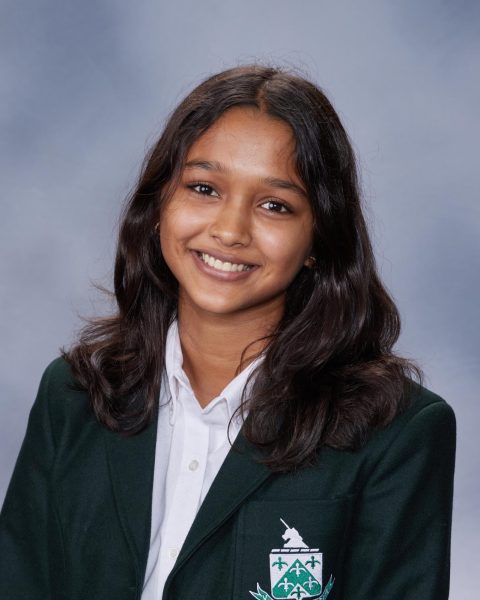At the front desk of the Upper School Library, librarian August Rivers displays a sign that declares “READ BANNED BOOKS.” A skull lies beneath the powerful words, and flowers reach through its empty eyes, blooming despite their desolate surroundings. There are complicated and controversial meanings hiding beneath that statement. It is a dare, a plea and a rebellion in one not-so-covert package.
An avid reader and active advocate against book censorship, Rivers finds the effects of banning books significantly detrimental to education and perspective.
“Restricting access to knowledge and information is harmful,” Rivers said. “It impacts people’s understanding of the world around them, understanding of current events and understanding of more nuanced things that happen within a culture or society,”
According to PEN America, a non-profit organization focused on global free expression, over 10,000 books were banned in American public schools during the 2023-2024 school year, more than doubling the number of books banned in each of the previous three years.
Whether the main issue lies in the motives, the action or the effect of literary censorship remains unclear, but several members of the Hockaday community agree that book banning is concerning and hazardous.
Corey Lott, the Director of Libraries and Academic Research, works hard to maintain an educational, interesting and diverse variety of books in the Upper School Library.
“Reading diverse materials broadens our perspectives, encourages critical thinking, fosters empathy and supports a more inclusive society,” Lott said. “Attempts at censorship stifle these growth opportunities, especially when it directly involves limited student access to these materials.”
Hockaday parent Katharine Friguletto is the president-elect of the Friends of the University Park Public Library, a non-profit that helps support the University Park Library through citizen volunteering.
Friguletto and her team devote the American Library Associations’ (ALA) Banned Books Week in October to bring awareness to books that have been banned or challenged. Challenged books, a term often accompanied with banned books, refers to any reading material that someone has attempted to remove from a public space because of the content.
“Authors, publishers and school librarians can designate what quality literature is,” Friguletto said. “I believe that their expertise should be relied on universally,”
For one week of the year, Friguletto displays banned or challenged books available for purchase, with all profits going back to the University Park Library. By bringing awareness to these books, she believes it makes more people aware of why these books might be rightfully or wrongfully banned.
As a parent, she also has an understanding of why some books are pushed to be challenged or banned.
“I think a parent should know what a child is reading, especially if they are topics generally in challenged books that, as a family, you care about,” Friguletto said. “But would they rather a child read a book about a topic that has been written by an author, edited by a publisher and chosen by a librarian that is high quality enough to sit in a library, or rely on the wild west on the internet?”
The fight for intellectual freedom extends beyond these bookshelves and into classrooms, where educators are facing their own challenges with book censorship.
Outside of the library, English teachers grapples with the challenges posed by book censorship as they strive to keep these growth opportunities alive. Middle School English teacher Dr. Lauren Miskin finds it perplexing that people who want to ban certain books that have often read those books.
“It’s always puzzling to me why people want to ban these classic works of literature,” Miskin said. “I think very often they haven’t read them, or they don’t fully understand them, which is all the more reason why they shouldn’t be banned.”
Miskin is not the only one questioning the motives of book banners. Dallas Youth Poet Laureate and sophomore Naisha Randhar battles against literary censorship through panels and performances.
Since reading The Hate U Give by Angie Thomas, a novel banned in six states, sixteen-year-old Randhar’s perspective on censorship changed dramatically Though the book is critically acclaimed, earning the Michael L. Printz Award and the Coretta Scott King Award in 2018, it has been banned in several schools due to profanity, sexual content, and anti-police messages. These topics, while uncomfortable, are real and tangible to thousands.
“The problem lies not only in the limitation of literary freedom, but in the emotional and mental effects that these restrictions have on minority communities,” Randhar said. “Book censorship is an issue that has taken a toll on the youth of today because the government bans certain books that are correlated with certain identities of marginalized youth. They aren’t able to see themselves in their own stories and continue to read more stories that they can’t relate to, so they feel invalid like the don’t exist.”
Randhar said she recognizes that many schools cannot control government-sanctioned restrictions, but she believes that schools should be choosing as diverse of a curriculum as possible
“It is important for people to read about different identities so that we don’t develop prejudices innately,” Randhar said. “If we confront it head on, then we are able to dismantle the prejudice and understand that it exists in our society rather than ignoring it and letting it fester.”
Miskin agrees with Randhaar and commends Hockaday for its receptivity and variation in curriculum.
“All the teachers are revising, cutting and rethinking the curriculum and how to include works from different voices, different genders and different races, and also how to approach classical texts from a more diverse perspective,” Miskin said. “It is very challenging in English to find that balance between what you think you should read, what you need to read and works from newer authors.”
At the end of the day, Miskin believes that it is all about balance. One must be both receptive to other identities and able to see themselves reflected and portrayed in literature. This point is best illustrated by the metaphor of “mirrors and windows.”
“Texts can work as mirrors when they reflect a student’s own lived experiences and identity,” Miskin said. “They see themselves reflected in the text, in other words. Texts can also work as windows, allowing students glimpses of lives and experiences that differ from their own. Windows help students to broaden and expand their perspectives.”
Randhar, Lott, Rivers, Friguletto and Miskin all agree diversity is imperative. Their enthusiastic messages and attitudes toward the diversity of literature portray the significance of being a well-rounded reader and having access to various perspectives.
“It’s critical for people who want to understand themselves, recognize themselves and give everybody respect that we continue to protect our books, whether it’s about any oppressed identity, especially if it makes you uncomfortable,” Randhar said. “That is our duty to each other and to society.”



